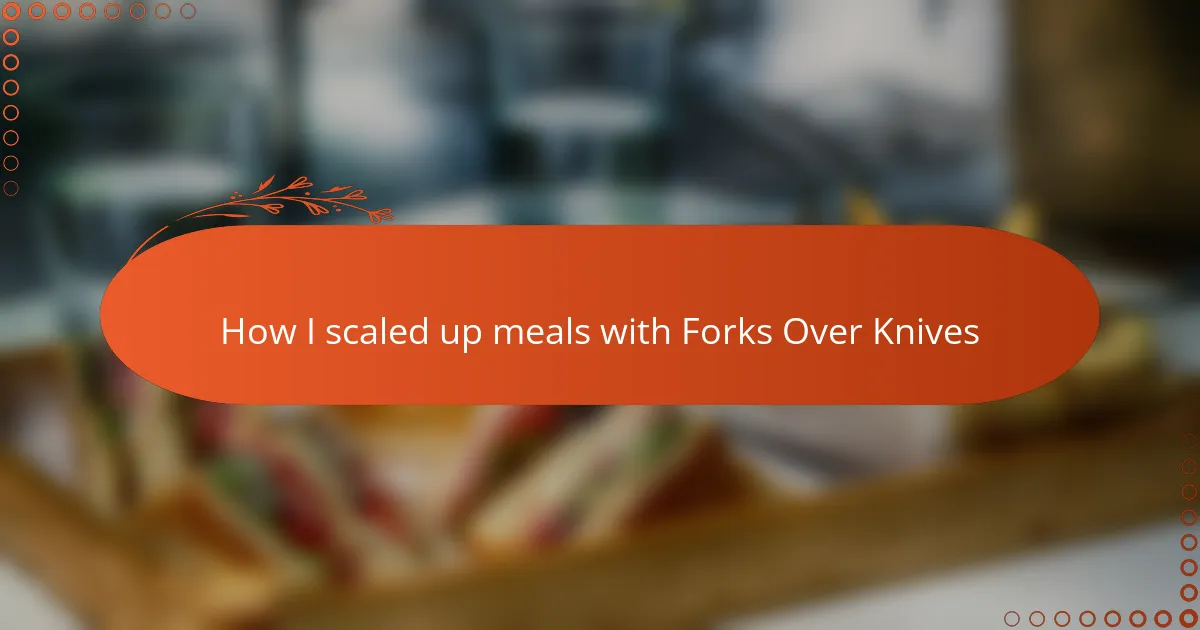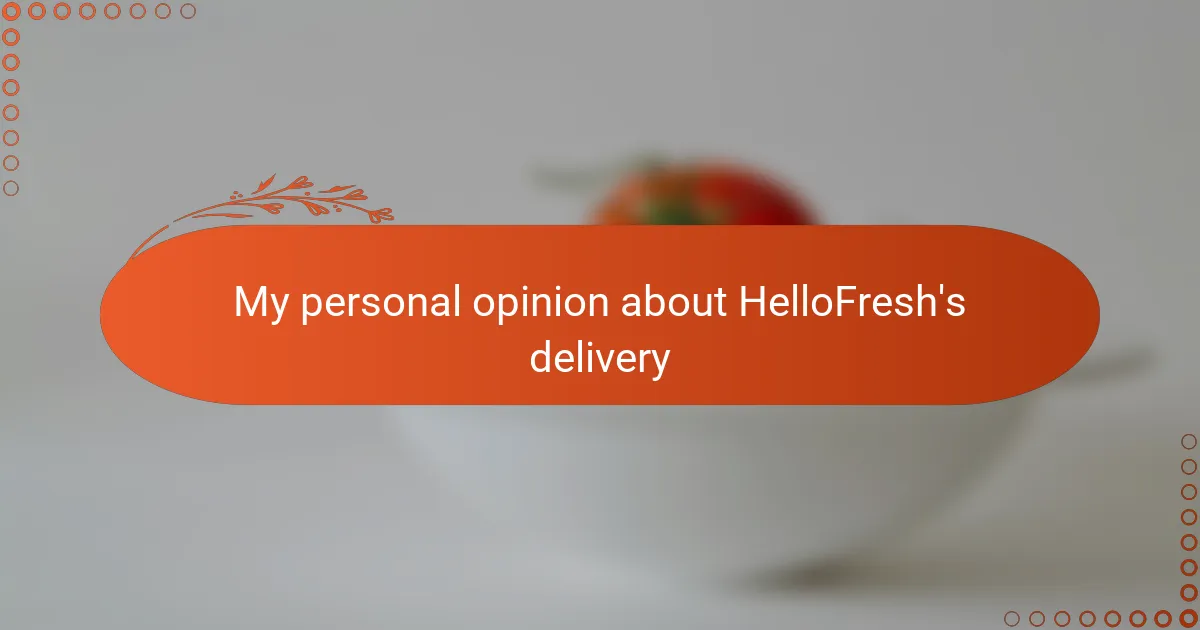Key takeaways
- Forks Over Knives promotes a whole, plant-based diet, emphasizing the benefits of fresh, unprocessed foods for energy and health.
- Homesteading cooking encourages a deep connection to ingredients by using seasonal and locally abundant produce, fostering creativity in meal preparation.
- Scaling recipes requires careful attention to flavor and cooking times, while breaking down ingredients into core components can simplify the process.
- Effective meal planning, batching, and storage strategies enhance efficiency and reduce waste, making homesteading cooking a more enjoyable experience.
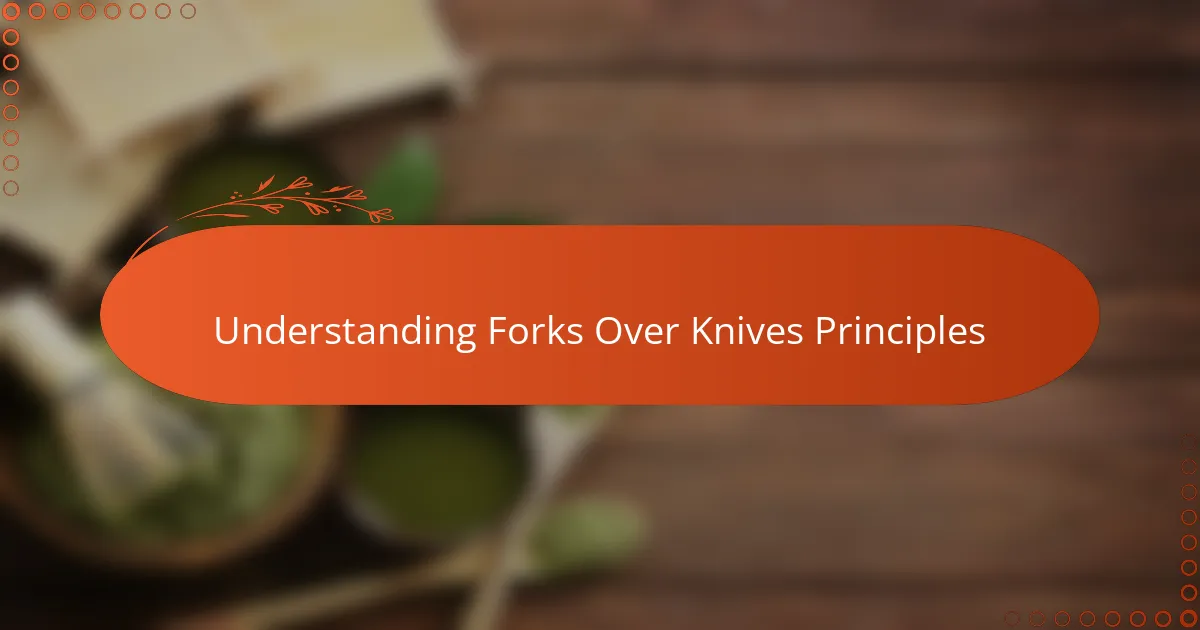
Understanding Forks Over Knives Principles
What drew me to Forks Over Knives was its simple but powerful principle: eat whole, plant-based foods to nourish your body deeply. It felt like a breath of fresh air compared to all the fad diets I’d tried before. Have you ever noticed how eating this way naturally makes you feel more energetic and alive?
The philosophy emphasizes ditching processed foods and animal products, focusing instead on vegetables, fruits, whole grains, and legumes. At first, this sounded restrictive, but I soon realized it opened up a world of flavors and creativity in the kitchen. Isn’t it fascinating how eating plants can be both wholesome and exciting?
Forks Over Knives isn’t just about food; it’s about transforming your relationship with what you eat. I remember feeling overwhelmed at the start, questioning if I could really stick to it. Yet, embracing these principles taught me patience and showed me the profound impact of mindful choices on my health and happiness.
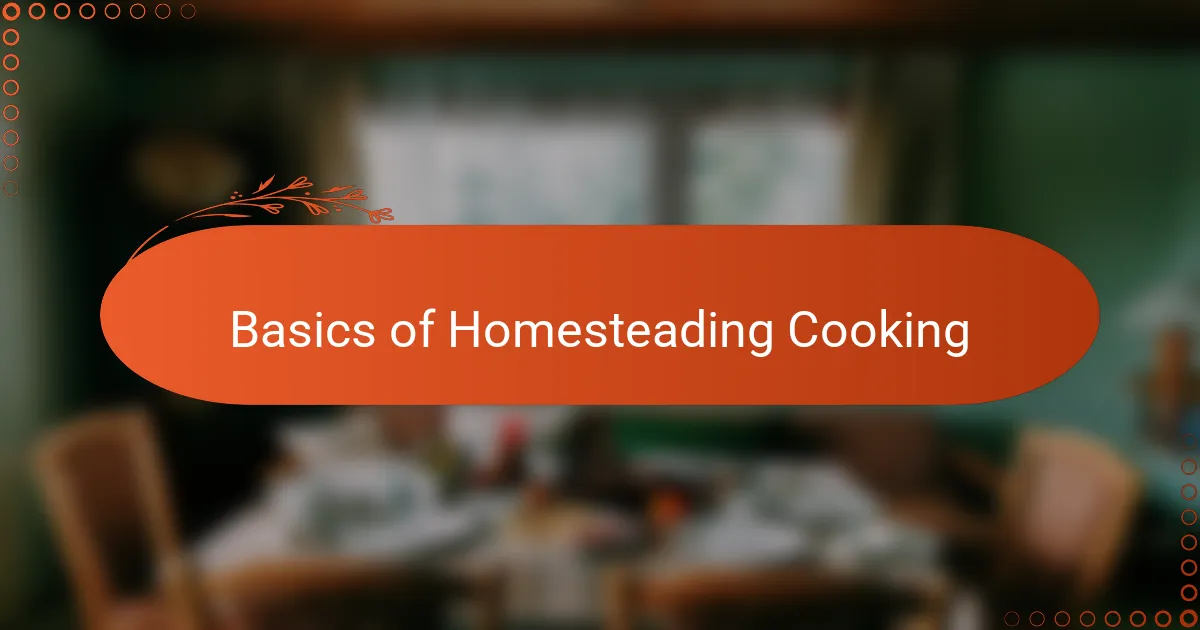
Basics of Homesteading Cooking
Cooking for a homestead is a different rhythm altogether. I’ve found it’s less about rushing and more about honoring the ingredients you grow or gather yourself. Have you ever felt that deep satisfaction when you cook a meal knowing every element came from your own patch of earth?
One thing I quickly learned is that simplicity is key. Homesteading cooking means using what’s fresh, seasonal, and abundant. That often means fewer ingredients, but more meaningful ones that connect you directly to the land and the seasons. Doesn’t that sound like a refreshing way to eat?
Of course, there’s a comforting routine too—like preserving herbs or drying beans for winter meals. These small acts create a bridge between the present moment and the harvests to come. Have you tried savoring a dish made from your own pantry staples and felt that quiet pride ripple through you? I have, and it’s truly special.
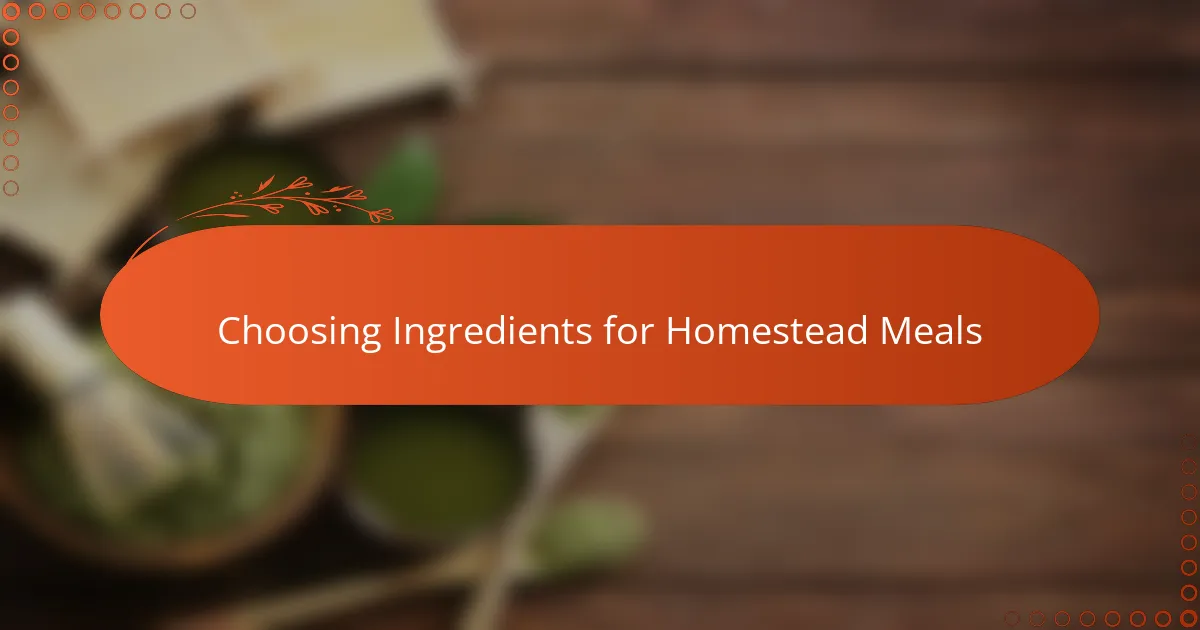
Choosing Ingredients for Homestead Meals
Choosing ingredients for homestead meals means reconnecting with the land in the most personal way. I remember the first time I picked fresh kale straight from my garden—it wasn’t just about freshness; it was about respect for the food’s journey from soil to plate. Have you ever noticed how ingredients grown with care seem to carry an extra layer of flavor and nourishment?
One lesson I’ve learned is to focus on seasonal bounty. It’s tempting to reach for every exotic ingredient, but sticking to what’s ripe and ready near you creates meals that feel both natural and satisfying. When you use beans, squash, or leafy greens at their peak, doesn’t it remind you that eating well is also about timing and balance?
I also find that selecting whole, unprocessed ingredients helps keep meals aligned with Forks Over Knives principles. Choosing whole grains like quinoa or brown rice over refined options feels like a small but powerful act of self-care. Have you ever compared the texture and taste of a dish made with whole grains to one that’s stripped down? To me, it’s the difference between nourishment and mere filling.
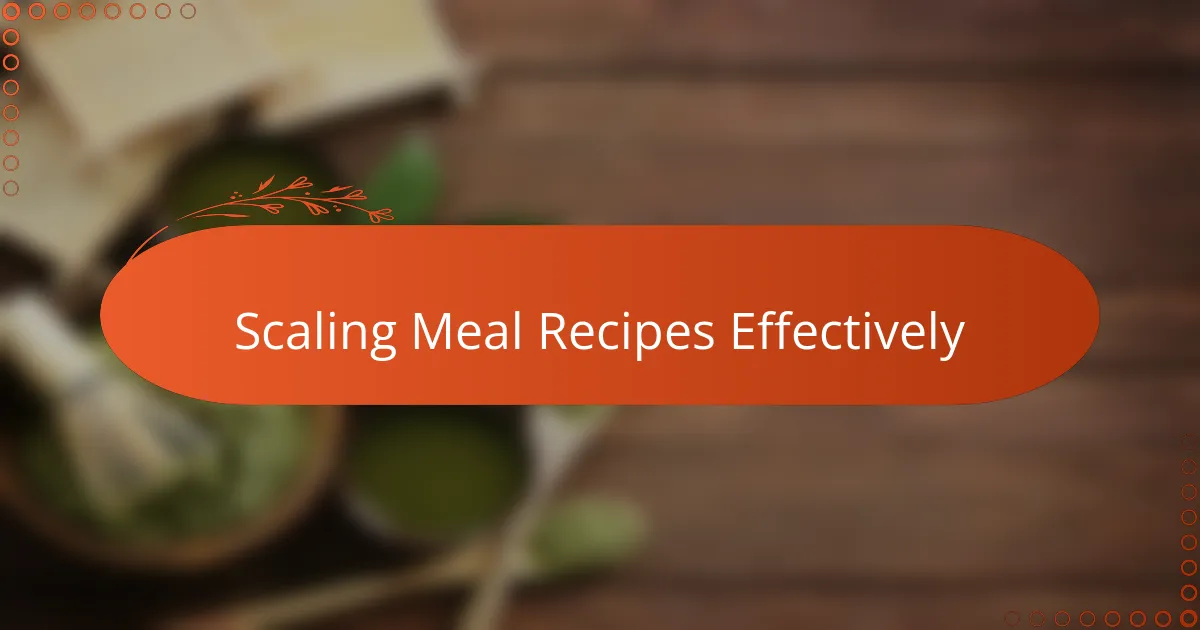
Scaling Meal Recipes Effectively
Scaling meal recipes effectively became an art I had to learn on my homestead. Initially, it felt overwhelming to multiply ingredients without losing the balance of flavors or the integrity of the dish. Have you ever tried doubling a recipe only to find it tastes quite different from the original? I sure have, and it taught me the importance of adjusting seasonings and cooking times thoughtfully.
One trick I rely on is breaking down recipes into core components—like starches, vegetables, and legumes—so I can scale each part independently. This way, everything cooks evenly, and no element gets overshadowed. It’s like orchestrating a small symphony in my kitchen, where every ingredient has its moment to shine.
Over time, I’ve realized that flexibility is key. Sometimes, I swap ingredients based on availability or portion size, trusting my intuition to keep the dish balanced. Doesn’t that freedom make you feel more connected to the cooking process, turning a simple meal scale-up into a creative adventure? For me, this approach brings both confidence and joy to feeding a larger crowd while honoring Forks Over Knives principles.
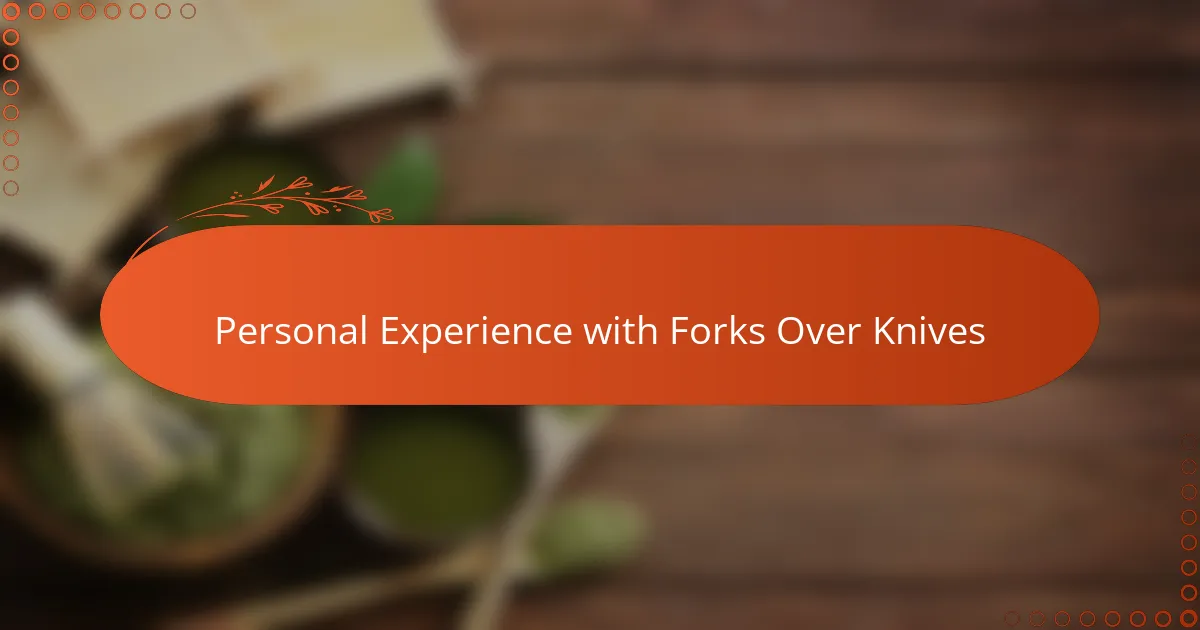
Personal Experience with Forks Over Knives
When I first embraced Forks Over Knives wholeheartedly, I was surprised by how quickly my energy levels improved. It wasn’t just about losing weight or eating “healthy”—it felt like my body was thanking me for real nourishment. Have you ever experienced a food reset that changed how you feel from the inside out? That was exactly my journey.
Adapting these principles on the homestead added a new layer of meaning for me. Preparing meals with fresh produce that aligned with Forks Over Knives guidelines felt like honoring both my health and the land that sustained us. There were moments when chopping colorful veggies straight from the garden felt almost meditative, connecting me deeply to the process.
Of course, it wasn’t always seamless. I remember a few trial-and-error weeks where I wrestled with familiar cravings and limited pantry options. Yet, each little victory—like discovering a new plant-based recipe that everyone loved—made me more confident. Have you noticed how small wins can build into a lasting lifestyle shift? For me, that gradual transformation was as rewarding as the meals themselves.
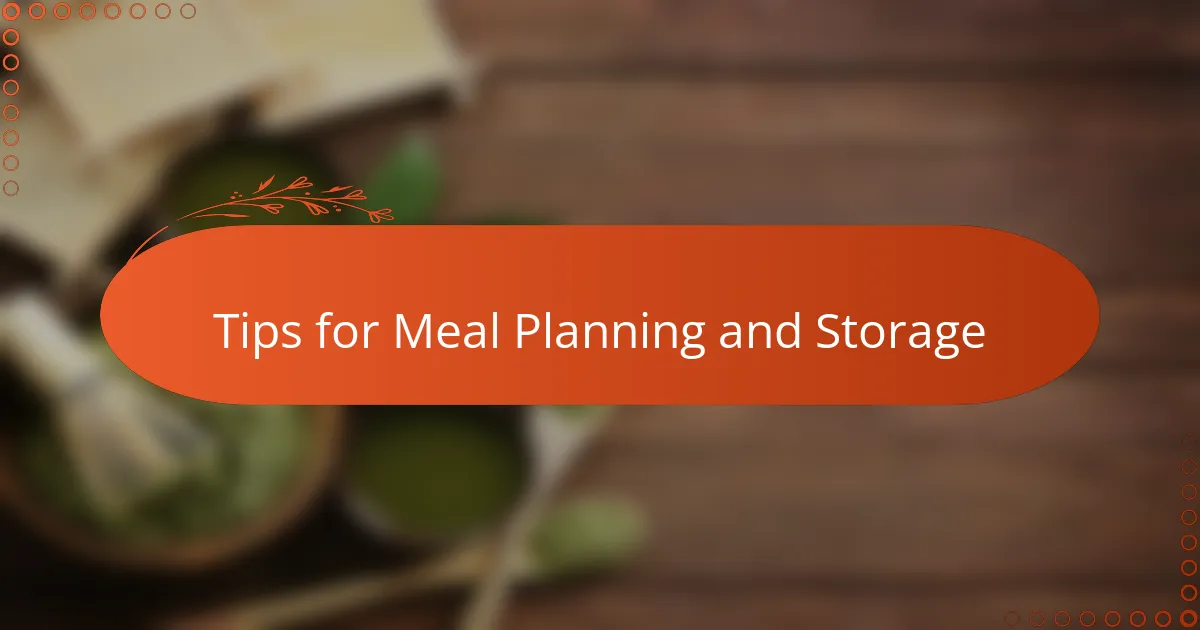
Tips for Meal Planning and Storage
Planning meals with Forks Over Knives means thinking ahead about batch cooking and portion sizes to avoid waste. I learned early on that setting aside a dedicated day for prepping staples like grains and beans saves me so much time during the week—and I hardly ever stress about what’s for dinner. Have you ever felt that calm knowing a nourishing meal is already waiting for you in the fridge?
Storage is equally important when scaling up. Using clear, airtight containers helps me keep ingredients fresh longer and see what’s available at a glance. There have been times I spotted a jar of homemade lentil stew just before it spoiled—and nothing beats the relief of turning that into a quick lunch instead of food waste, right?
One practical tip I always follow is to freeze individual portions right after cooking. This way, I can pull out exactly what I need without thawing an entire batch. Over time, this habit became a small ritual that gives me both flexibility and peace of mind, especially on those busy homestead days when juggling multiple chores. Have you found any storage tricks that make meal scaling feel effortless? For me, this one changed everything.
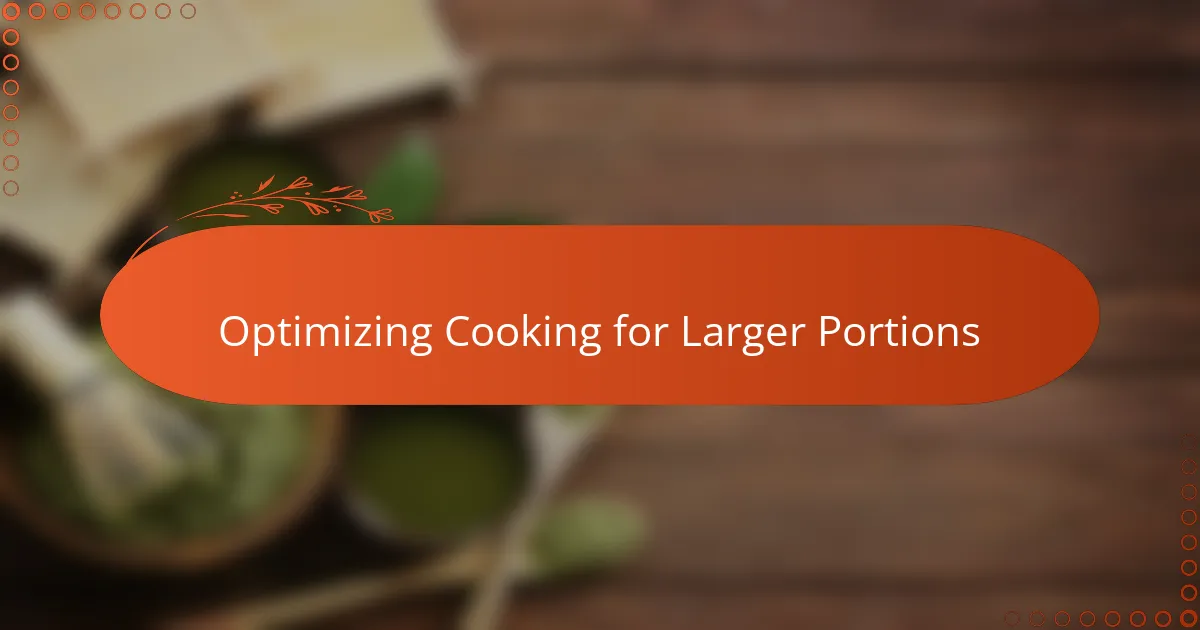
Optimizing Cooking for Larger Portions
Scaling up meals challenged me to rethink not just quantities, but the whole rhythm of cooking. Have you ever noticed how a bigger pot changes cooking times and flavors? I found that stirring more frequently and adjusting heat levels made all the difference in preventing overcooked or underseasoned dishes.
One adjustment I made was investing in larger cookware and reliable kitchen tools designed for volume. Suddenly, cooking for a crowd felt less like a chore and more like a shared experience. Doesn’t it feel good to have the right tools that match your ambitions in the kitchen?
I also learned to batch prep ingredients separately—chopping veggies in bulk while timing grains and legumes carefully. This approach gave me more control and less stress, especially when juggling multiple dishes. Have you tried breaking down tasks like this and felt how much smoother cooking becomes? For me, it turned meal scaling from intimidating to enjoyable.
